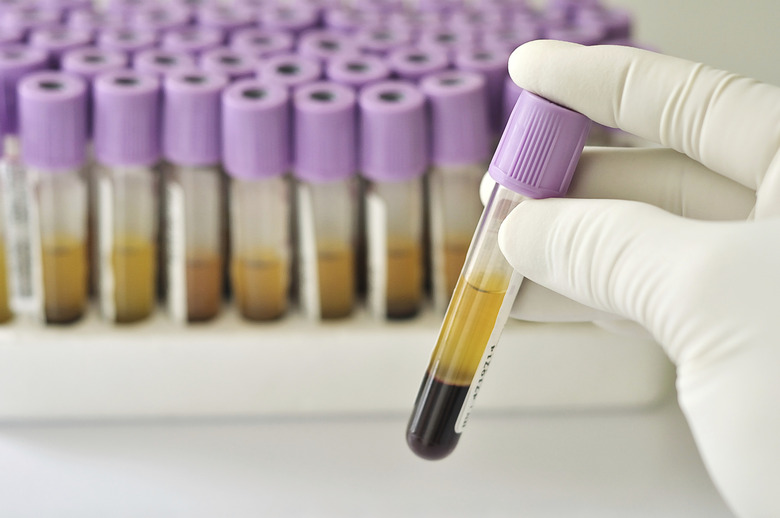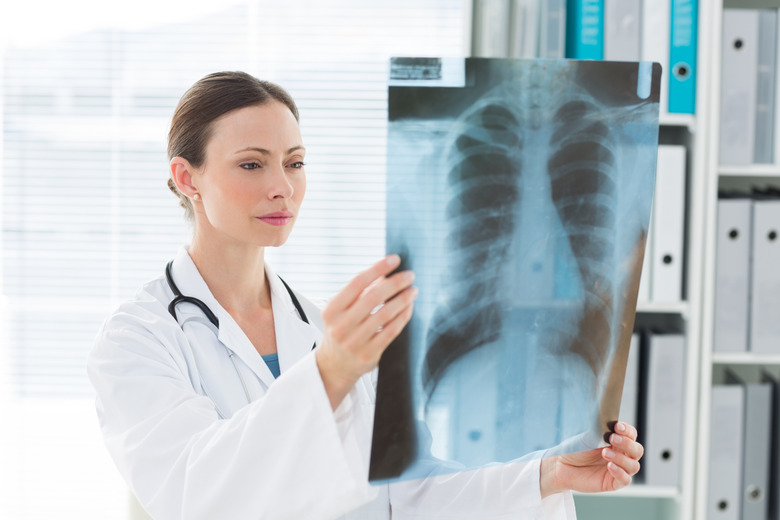Definition Of Human Biology
What is human biology? If this is an area you're thinking about studying at college or university, arm yourself with as much human biology information as possible so you know what to expect. Biology is a natural science that studies the physiology, behavior and other qualities of life and living organisms, while human biology focuses on humans. The study of human biology covers a wide range of subjects and may include genetics, evolution, physiology, anatomy, epidemiology, anthropology, ecology and nutrition. A comprehensive human biology definition must cover all of these aspects.
TL;DR (Too Long; Didn't Read)
**TL;DR (Too Long; Didn't Read)**
Human biology focuses on the aspects of biology most relevant to humans, such as physiology, nutrition, anatomy and evolution.
Aspects of Human Biology: Physiology
Aspects of Human Biology: Physiology
Physiology examines all the functions and mechanisms of the human body, such as the sequence of messages our bodies send and receive. For example, physiologists have shown that our heart rate increases when adrenaline is released in response to the fight or flight response. This adrenaline then attaches to particular sensors on the part of the heart that controls how fast it beats.
Aspects of Human Biology: Nutrition
Aspects of Human Biology: Nutrition
Nutrition is a broad term covering the study of nutrients in food, how the body uses nutrients, and the relationship between diet, health and disease. The six nutrients the human body needs for energy, to maintain tissue and to regulate bodily processes are carbohydrates, fats, proteins, water, vitamins and minerals. Dietary patterns, risk factors for disease such as inflammatory markers and DNA-methylation and dietary strategies for weight loss are of interest to people working in the field of nutrition.
Aspects of Human Biology: Anatomy
Aspects of Human Biology: Anatomy
Anatomy is the science of the structure of the body. The body is made up of various different systems, including the skeletal system, the muscular system, the digestive system and the circulatory system. The body needs every system to work well for optimum health. All systems must also work harmoniously together. For example, the skeletal system, consisting of bones, cartilages, ligaments and other tissues, and the muscular system, made up of specialized cells called muscle fibers, work together to make the body move.
Aspects of Human Biology: Evolution
Aspects of Human Biology: Evolution
Biological evolution addresses how the human body has changed over time when genetic inheritance is involved. Over millions of years, humans have changed and adapted to the world around them. Evolution covers the similarities and differences between humans in their body form, genes, behavior and physiology. Evolution may be small-scale, for example, changes from one generation to the next, or large-scale, such as the descent of different species from a common ancestor over several generations.
Cite This Article
MLA
Gillespie, Claire. "Definition Of Human Biology" sciencing.com, https://www.sciencing.com/definition-human-biology-6567644/. 20 July 2018.
APA
Gillespie, Claire. (2018, July 20). Definition Of Human Biology. sciencing.com. Retrieved from https://www.sciencing.com/definition-human-biology-6567644/
Chicago
Gillespie, Claire. Definition Of Human Biology last modified August 30, 2022. https://www.sciencing.com/definition-human-biology-6567644/




